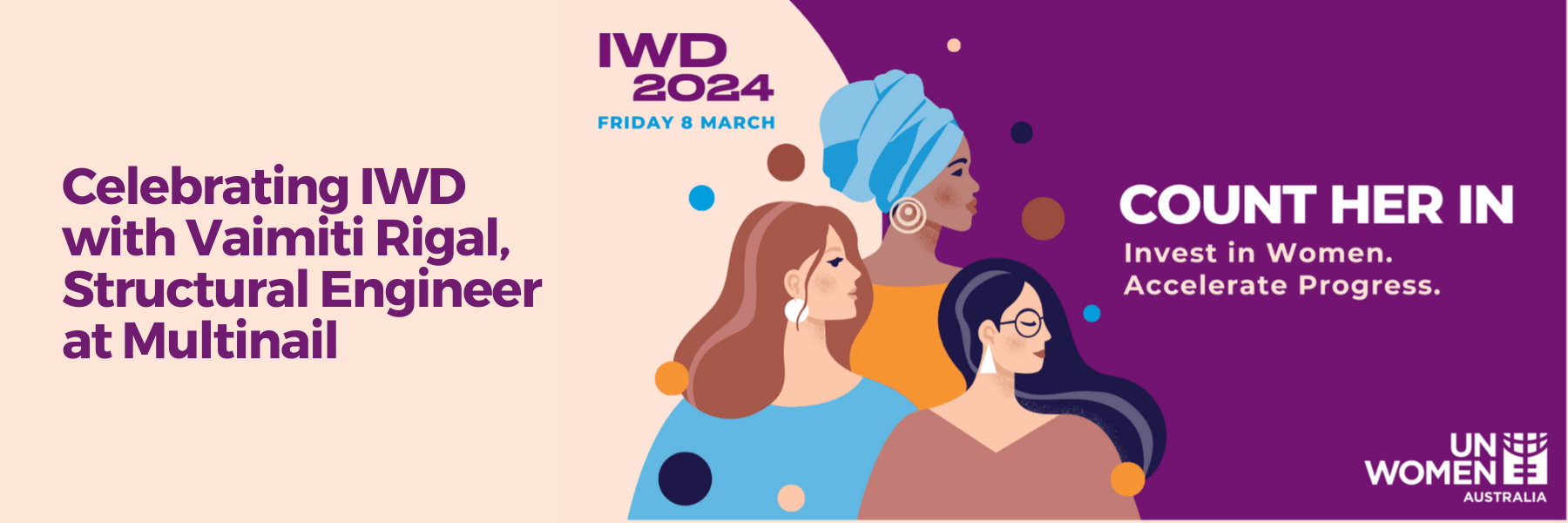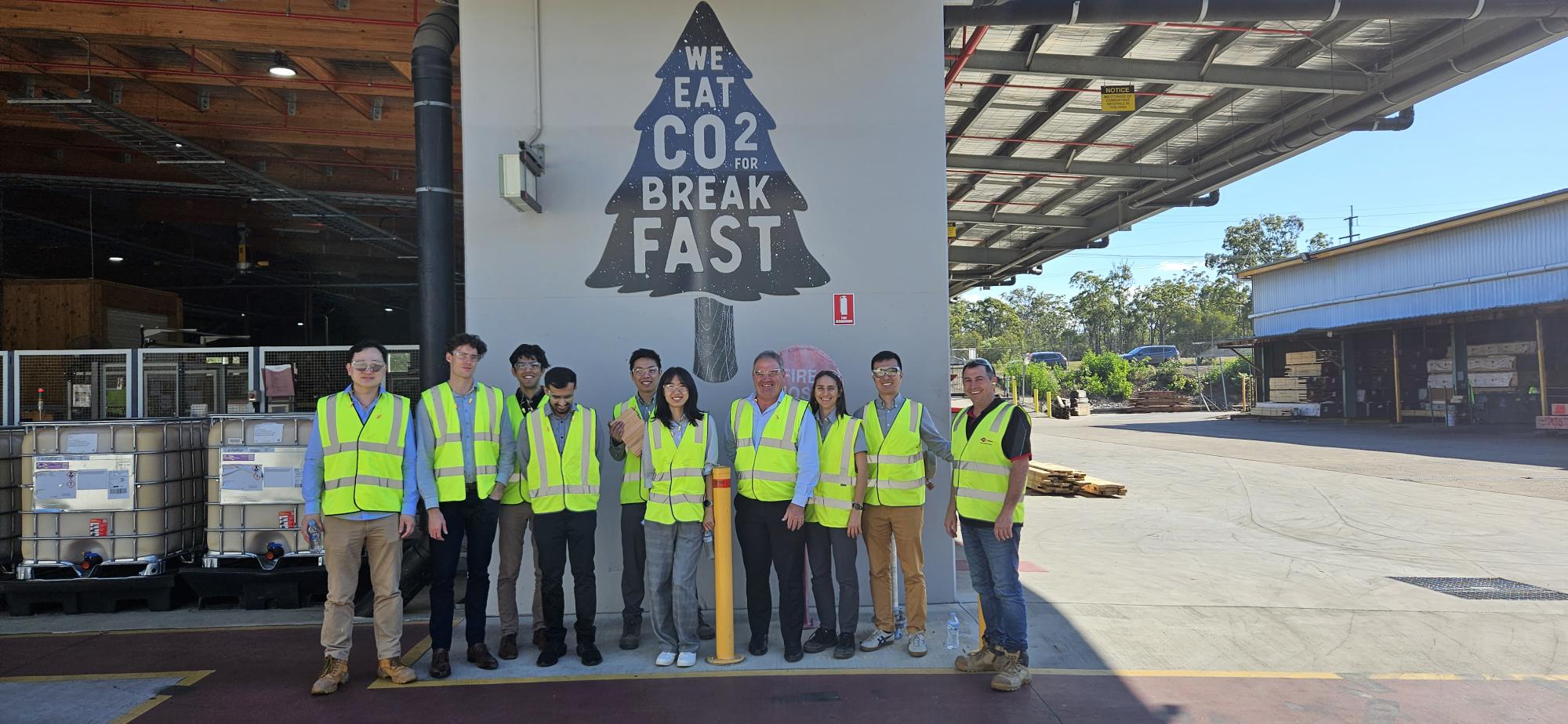
“Write Your Dream. Then Put a Date Next to it. From That Point, it Becomes Your Objective.”
This article was written by FTMA’s Kat Welsh
It was International Women’s Day 2024 on the 8th March. To celebrate throughout the month, FTMA is releasing an article each week, highlighting the journey of 4 women and the achievements they have made in the industry. If you haven’t already, you can catch up on the other feature articles – Carly Timperley, Shelena Serrano, and Jenny Binnie.
The previous articles have looked into the theme of this year’s International Women’s Day Count Her In: Invest in Women. Accelerate Progress. This includes global and local issues that women face when trying to support themselves. And how when women are invested in – invest in themselves – everybody benefits.
There are so many ways in which women could and should be empowered. There are gender biases that women face every day – commonly having to prove they’re not a risk to be taken, when navigating a career pathway. It’s been a long journey of incredible women pushing societies boundaries, for us to get to this point. Bertha Benz, Amelia Earhart, Ada Lovelace, Katherine Johnson – consistent examples of women justifying their worth, for cultures to start shifting. Every generation seems to be a little further down the road of equality, but there is still work to be done.
Vaimiti Rigal is a Structural Engineer, working with Multinail. What started off as a love for numbers and mathematics, has led Vaimiti into a career where she is passionately using her skills to drive climate change solutions. But, timber construction was not something she had planned to go into.
Growing up, Vaimiti’s favourite subject was maths. After finishing exams at school, Vaimiti was successful in her application to the school of structural and civil engineering, in Paris. The experience of being there, was highly inspiring, and confirmed for Vaimiti that being in engineering was going to be fulfilling. “The feedback from everyone, across every discipline, was it’s amazing. You get to build things, you get to see things. It’s a rapidly evolving industry where we keep doing things better and better.”
Following University, Vaimiti went on to work as a site engineer in Singapore – hands on in the construction of the national stadium, followed by a viaduct for the metro. In 2014 she moved to Brisbane with her husband. Housing was the main option for employment at the time, and Vaimiti applied for a position with Multinail. It ignited the significance of timber in the climate crisis – knowing that what she was doing was making a difference.

Finding a greater meaning in what we do, is the golden ticket.
“At a general global scale wood and timber is the most sustainable material that we can be using. The planet can reproduce timber at a much faster pace than the raw material needed for steel or concrete. Responsibly sourced, it’s the very best thing to do for the planet and that is something that I have found very rewarding,” Vaimiti said.
All the women featured in the FTMA series this month, did not plan to be in this sector, yet the sector found them. “What I got to discover is it’s such an incredible industry to work with, and it’s such a positive industry to work in, in so many different aspects,” Vaimiti said.
Technologically the sector is advancing rapidly, which is an exciting thing to be a part of. “The pace of the research is fast. Over the 9 years that I have been working with Multinail, I can see how the products have evolved, the material is evolving, CLTs, LVLs, there is a solution everywhere. Brackets, screws, connectors they get better, new brands are coming in, development at every level, you can literally see from one year to another how things are getting better.”
For Vaimiti, while her career and work are inspiring and important, her focus is also to keep a firm balance with life outside of that too. No matter how much you love your job, there needs to be equilibrium with everything. “Work is not the only part of life. I am a very happy mum of 2, and I work really hard at keeping a balance and being present in the life of my daughters, and supporting them.” Having small children and careers, often is challenging. Vaimiti and her husband don’t have family in Australia. “It takes a village, to be able to raise children. We really need every single part of that village. I think it’s hard because it’s not going to be given to you, unless you ask for it. It can be so hard sometimes, daring to ask.” Parents everywhere, single mums, single dads, partnered parents, need more than themselves to support the next generation, and they are part of the solution for other parents too.
“Build a village around you, and don’t hesitate to ask” Vaimiti said.
Talking about the journey of gender equality, Vaimiti said, “I don’t know if things are getting better fast enough, but they are surely getting better. Back when I was little, playing with trucks in the sandpit wasn’t for girls. For me it starts at the very beginning. If children are not offered the same, if there is not equal opportunity at the beginning of education then we can’t expect things to be equal when we reach an adult age.” Vaimiti pointed out that if children are told from an early age what they can and can’t do based on their gender, then it will only be a minority that will push the boundaries. Like those minority of trailblazing women that have pushed the gender stereotype throughout history – exceptions to the rule, not acceptations. “If we continue to expect different behaviours and discourage the disliked conducts based on gender, then there is a classification at the very beginning,” Vaimiti said.
“I strongly believe in equal opportunities and equal education, at the very beginning. That’s where it starts.” Timber Queensland has received funding for Canopy, an initiative designed to promote jobs and career pathways in the timber sector, part of which is aimed at high schools. They educate about what the industry does, what it is capable of, all the diverse opportunities, and how it is part of the solution for the climate. “Having developments like Canopy, presented to both boys’ schools, girls’ schools, co-ed schools, etc. is definitely something that will help,” Vaimiti said, “there are probably 2 problems, the first one is to have more women entering into the industry, the second one is to retain them.” When Vaimiti finished university, the number of women entering structural engineering in France was 30%. Vaimiti was advised that after 5 years, less than 5% of those women would still be working as structural engineers. Often those women had gone on to more marketing or admin roles, if they stayed within the field.
At that time, one of the barriers women faced during the employment and interview process, was how soon would they be applying for maternity leave? “They don’t ask it, but that’s what they are thinking,” said Vaimiti, who was advised at the time by recruiters to mention in her interviews – even if not asked directly – that she had no intentions of going on mat leave in the next 2 years. Otherwise, she risked not getting the job.
The advancement of parental leave opportunities thankfully, are straying away from the 1950’s mindset – more options for fathers being recognised as carers and accessing leave, and less of the mentality that a woman must be written off once she has a baby. But it is still an on-going struggle, even here in Australia.
Vaimiti was one of those 5% of women that has succeeded as a structural engineer. Having made it through the initial gender-based judgements, what followed for her has not been met with issues. “Working in the timber frame and truss industry, I have been very well treated as a woman.” There has been respect, and acceptance. Vaimiti is seen for her skills, and valued for her knowledge, and abilities. “Nine years later I am still here. I would say that the first thing was it was like a family, there is a real feeling of family to small industry. It’s an industry where everyone knows each other. There will always be someone that you can reach out to.”
We all have goals and aspirations, and seeking practical advice from others who have done something similar is crucial – it can help map the pathway to success.
“I think one thing that may be discouraging, is feeling like the mountain is too high, feelings that the target is too high. One thing I was told, is write your dream. Then put a date next to it. From that point, it becomes your objective. It doesn’t matter whether you are going fast or you are going slow, what matters is that you are moving forward towards your goal. You don’t stop or go back.”
Vaimiti’s advice to invest in yourself? Build your connections, even if it’s outside of work, attend events, attend seminars, join professional bodies, take control of your personal growth, keep learning. Put yourself out there, put yourself forward, and always ask questions. “Until it makes sense, keep asking the question. If the answer doesn’t make sense to you, ask the question again.” If you’re facing the internal sabotaging voices, “try to tune them down. Instead, listen to that little voice that was expressing the wish and the hope, and then put a date next to it!”
Vaimiti, thank you so much for taking the time to talk about your journey, the timber industry and its critical role for climate solutions, personal growth, and also your insights in the progress of equality. You are a wonderful role model for your daughters, and all women out there contemplating a future in this industry.
Our Principal Partners



